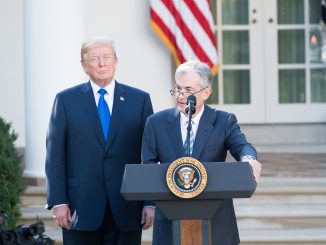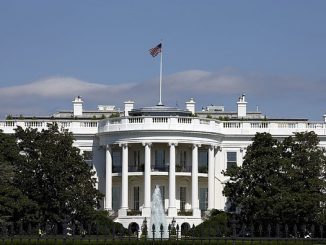
President-elect Donald Trump has vocally opposed the current U.S. debt ceiling, advocating for its complete abolition. In a recent phone interview with NBC News, Trump declared that eliminating the debt ceiling would be the “smartest thing” Congress could do, expressing his full support for such a move. He highlighted a bipartisan interest in removing what he considers a psychological barrier rather than a substantive one, suggesting that the consequences of breaching it are uncertain and potentially inconsequential.
Trump’s stance comes amidst the looming threat of a government shutdown, with the deadline set to occur at 12:01 a.m. on Saturday if no funding agreement is reached. He argued that any shutdown should happen under the current Democratic administration, framing the current congressional impasse as a strategic move to set the stage for his incoming administration.
His critique extended to the recent short-term funding deal, or continuing resolution, proposed by House Speaker Mike Johnson. Trump labeled this deal as “unacceptable,” insinuating it was crafted as a “Democrat trap.” His comments reflect a broader dissatisfaction with the current legislative approach to government funding, particularly under the constraints of the debt ceiling.
Moreover, Trump revealed he had consulted with Elon Musk, the owner of X, prior to Musk’s public statements on the matter. Trump emphasized that their perspectives were aligned, particularly on viewing the issue from a cost perspective, indicating a shared belief in the need for fiscal reforms unburdened by traditional budgetary caps like the debt ceiling.
Trump’s suggestion to do away with the debt ceiling is controversial, as it could lead to unchecked federal borrowing with potential long-term economic implications. Critics argue that while the debt ceiling has been a source of political brinkmanship, it serves as a necessary check on government spending. Supporters of Trump’s view might argue that in an era of complex economic challenges, including recovery from global pandemics and shifts in global economic power, such traditional mechanisms might hinder effective governance and economic strategy.
This development signals Trump’s intent to influence fiscal policy from the outset of his term, potentially setting the tone for a more aggressive approach to government spending and debt management. His advocacy for eliminating the debt ceiling could either streamline fiscal operations or, if not managed judiciously, lead to significant increases in national debt without the previous legislative oversight that the ceiling provided.
- Bulenox: Get 45% to 91% OFF ... Use Discount Code: UNO
- Risk Our Money Not Yours | Get 50% to 90% OFF ... Use Discount Code: MMBVBKSM
Disclaimer: This page contains affiliate links. If you choose to make a purchase after clicking a link, we may receive a commission at no additional cost to you. Thank you for your support!




Leave a Reply